In the homeware porcelain industry, more and more brands, retail chains, and restaurants are turning to OEM companies as a solution to create customized products under their own brand names. But what exactly is OEM? And how do OEM manufacturing companies operate in this field? Let’s explore the answers together with Long Phuong Porcelain in the article below!
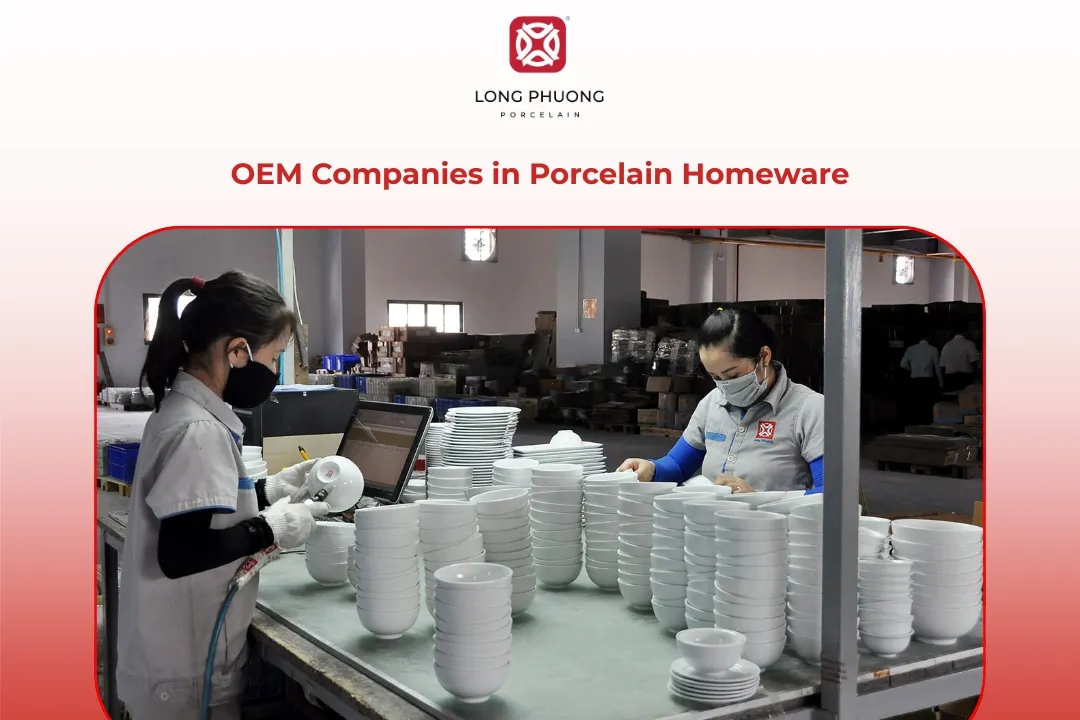
1. What Are OEM Companies in the Homeware Industry?
1.1 What Is Meant by an OEM Company?
An OEM (Original Equipment Manufacturer) is a company that produces products based on a client’s specifications, branding, and design — while the manufacturing process remains entirely in the hands of the OEM. This allows brands, retailers, or distributors to focus on marketing, distribution, and customer experience without the burden of owning a factory or investing in large-scale production infrastructure.
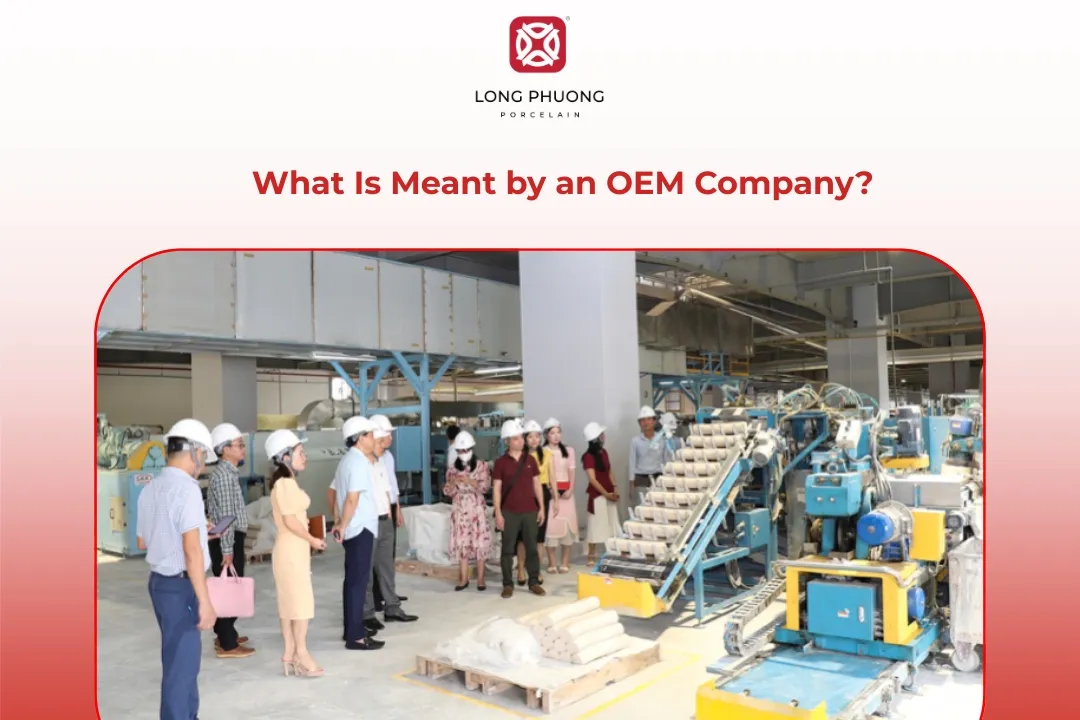
1.2 Who Is the Biggest OEM?
While global OEM giants span across industries such as electronics and automotive, in the homeware and porcelain sector, the title of “biggest” often depends on the market segment — from affordable everyday ceramics to premium handcrafted collections. In Vietnam, Long Phuong Porcelain is recognized as one of the leading OEM companies, known for its advanced ceramic technology, high-quality control standards, and ability to scale production while offering tailored design solutions for partners globally.
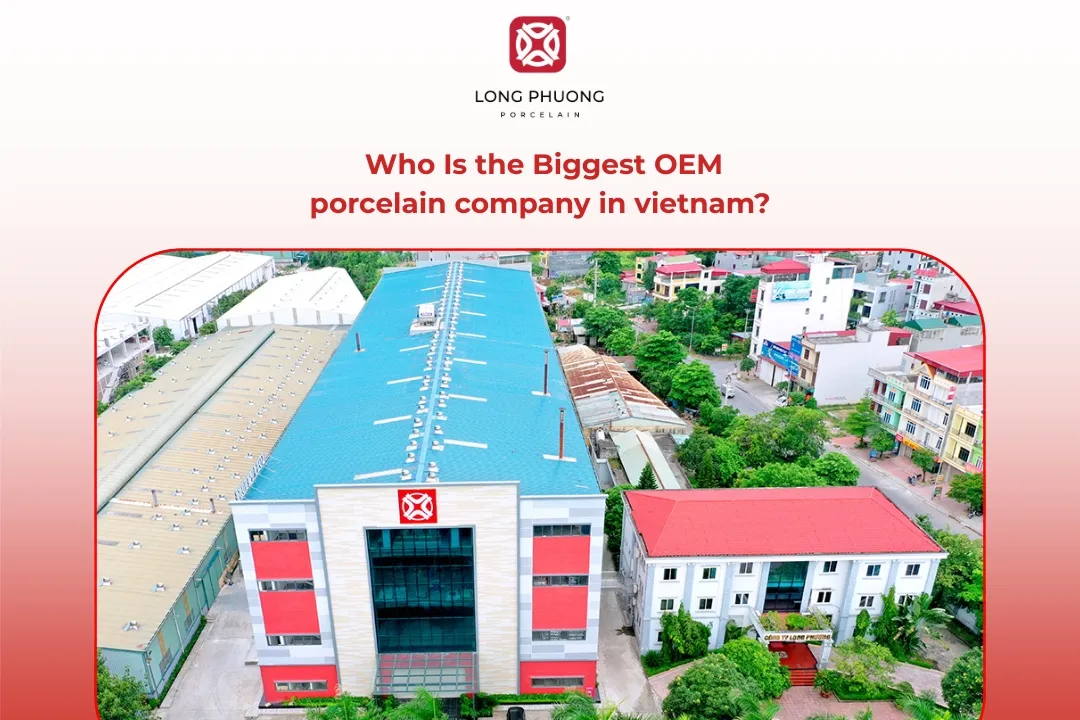
1.3 What Is an Example of an OEM Brand?
Many successful retail and lifestyle brands leverage OEM partnerships without manufacturing their own products. For example, a boutique tea brand may sell premium porcelain teaware with its logo, slogan, and custom packaging — all produced by an OEM manufacturer. This seamless cooperation allows them to expand product offerings and boost brand perception without investing in a ceramics workshop.
1.4. Role of OEM Companies in Porcelain & Homeware
OEM companies act as creative and technical backbones for many brands in the homeware space. They help:
- Translate a brand’s design concept into tangible, sellable goods.
- Ensure material safety, functionality, and aesthetic appeal.
- Deliver consistent quality across batches — crucial for hospitality chains or retailers.
- Reduce costs and risk by eliminating the need for in-house production.
1.5 Common OEM Product Types in Homeware
Some of the most popular OEM product categories in porcelain include:
- Dinnerware Sets: Plates, bowls, serving platters tailored to the restaurant or home dining segment.
- Tea Sets: Custom designs for tea houses, hotels, and seasonal gift boxes.
- Ceramic Mugs: Branded mugs with unique shapes, textures, and decal printing.
- Customized Gifts: Personalized keepsakes for events, corporate branding, or cultural celebrations.
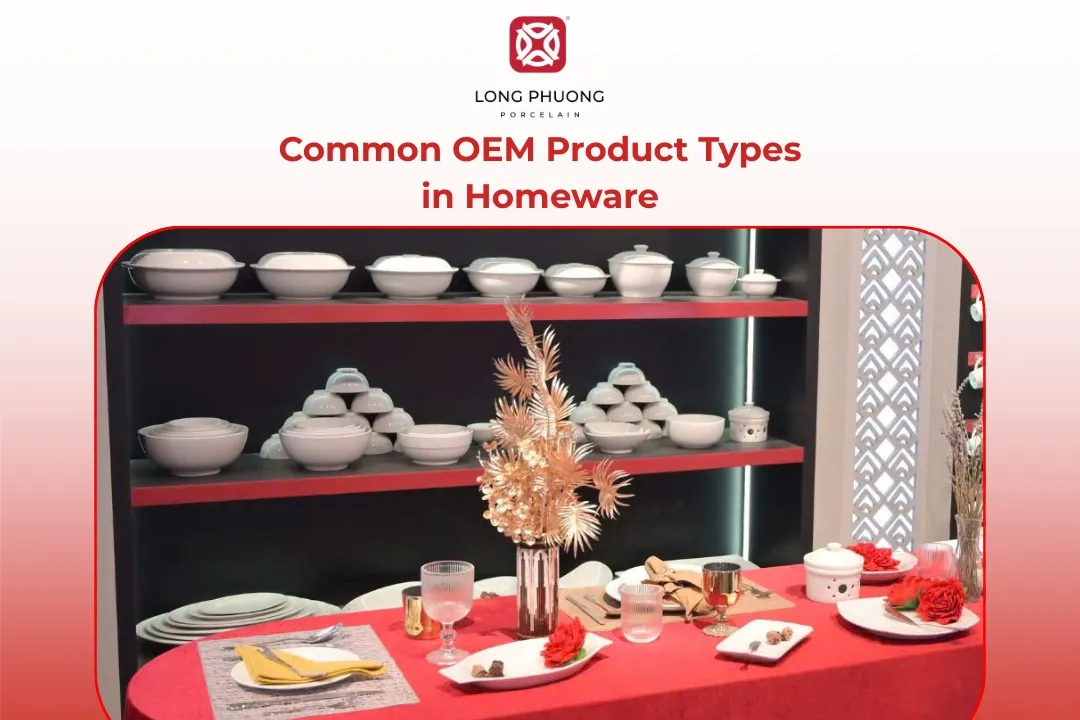
2. OEM vs ODM vs Mass Production: What’s the Difference?
2.1 OEM: Your Design, Your Brand
OEM allows businesses to have full control over their product’s design, specifications, and branding. The manufacturer is responsible for production based on the buyer’s requirements, but the intellectual property remains with the client. This model is ideal for companies seeking to build a distinctive brand with unique features and premium quality.
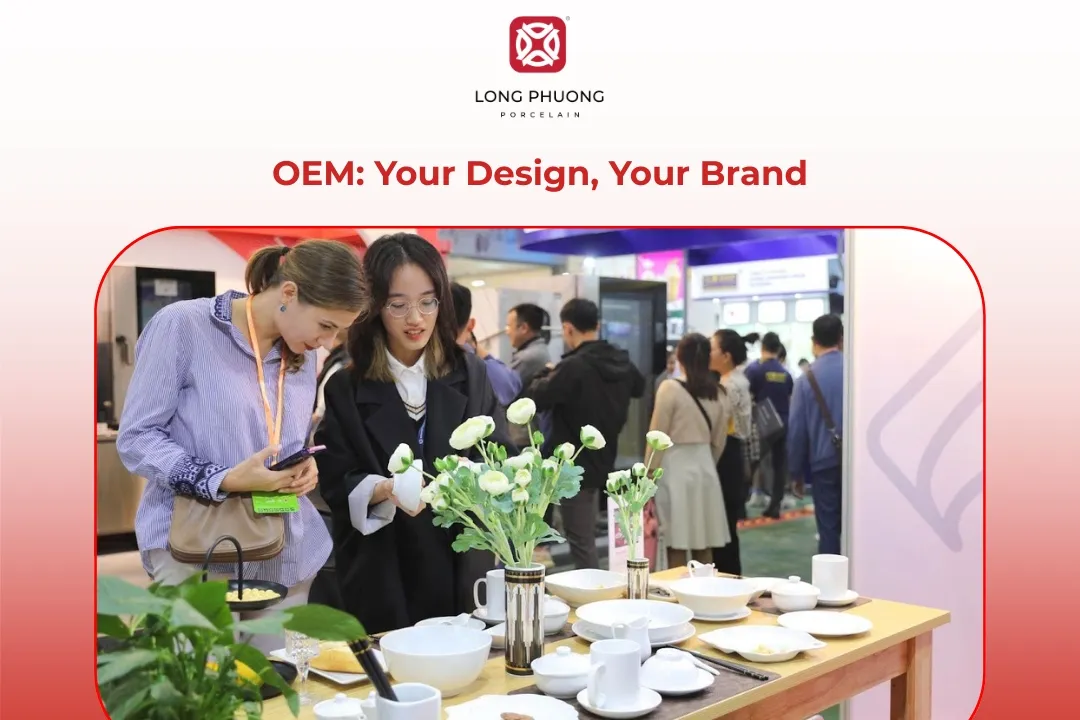
2.2 ODM: Manufacturer’s Design, Your Brand
ODM (Original Design Manufacturer) offers a faster and more cost-effective route to market by allowing companies to use a ready-made product design provided by the manufacturer. Businesses can rebrand the product as their own, but have limited influence over design customization. This model is suited for those prioritizing speed, efficiency, and lower upfront costs.
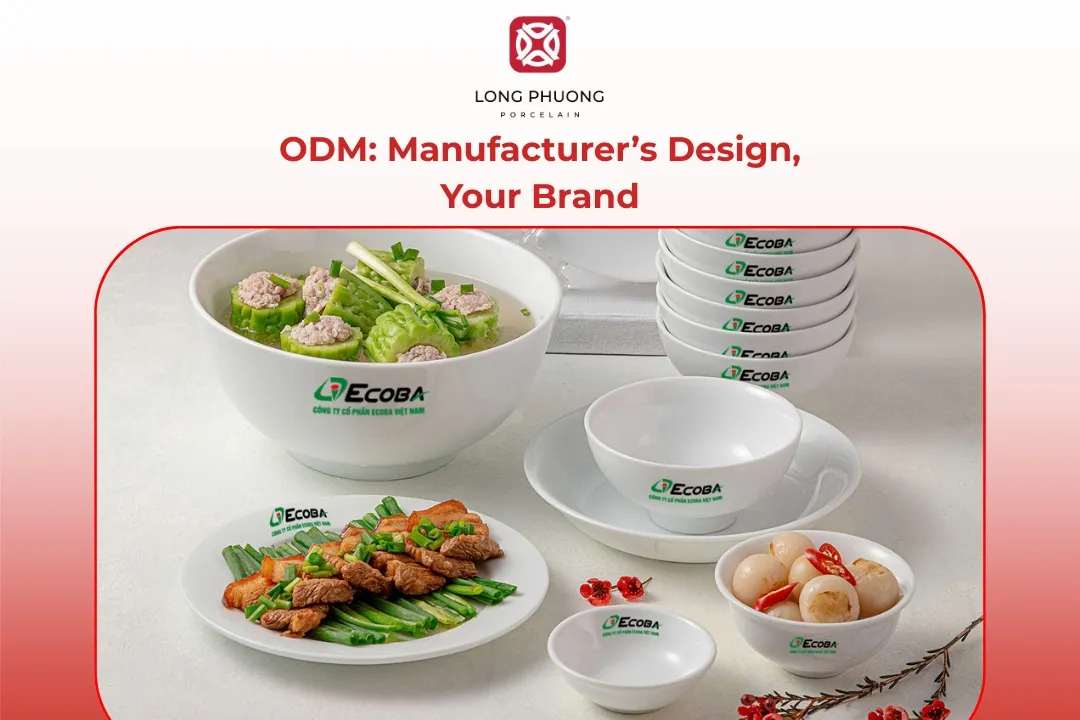
2.3 Mass Production: Generic Products with No Branding
| Criteria | OEM | ODM | Mass Production |
| Product Design | Provided by buyer | Provided by manufacturer | Generic, not brand-specific |
| Branding | Buyer’s brand | Buyer’s brand | No branding |
| Customization Level | High (fully tailored) | Medium (some limited options) | None |
| Intellectual Property | Owned by buyer | Owned by manufacturer | Not applicable |
| Time to Market | Longer | Shorter | Fastest |
| Ideal For | Unique brand identity | Quick market entry | Bulk, cost-driven production |
3. Benefits of Partnering With OEM Manufacturing Companies
Choosing to collaborate with OEM manufacturing companies offers numerous strategic advantages, especially for businesses aiming to establish or expand their presence in the porcelain and homeware market.
3.1 Brand Customization
OEM partnerships give businesses the flexibility to tailor every aspect of their products — from design and material to logo placement and packaging. This level of customization ensures the final product aligns seamlessly with the brand’s visual identity and message.
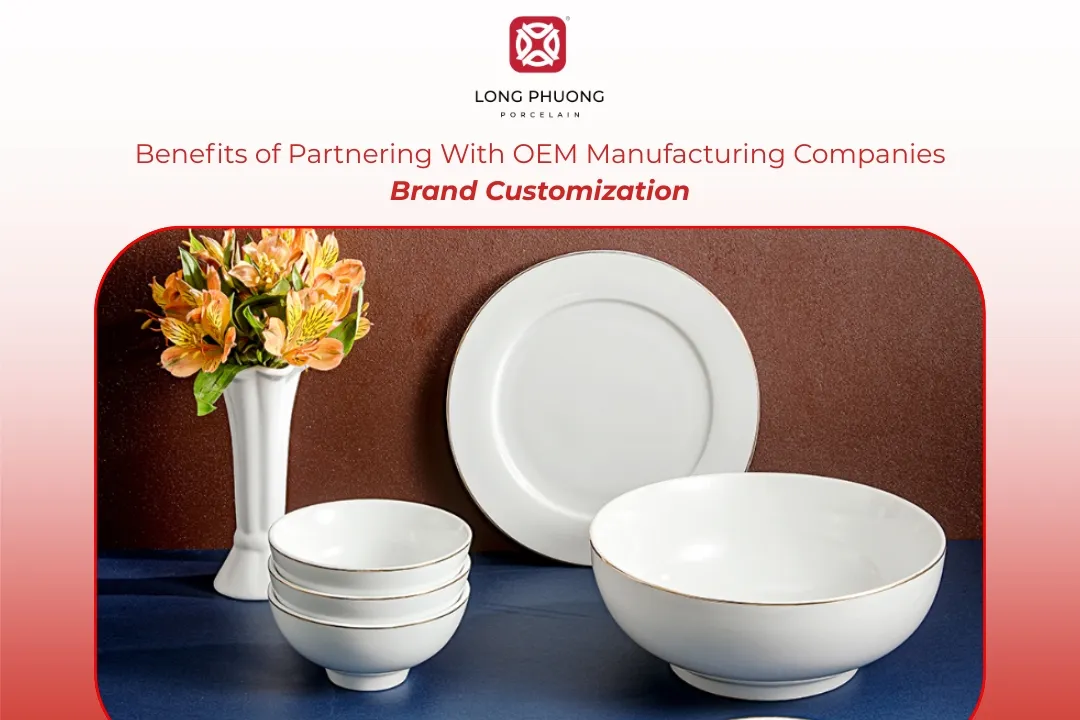
3.2 Bulk Production Cost Optimization
By leveraging the scale and efficiency of professional OEM manufacturers, brands can significantly reduce per-unit costs for large orders. This cost advantage allows businesses to price competitively while maintaining healthy margins.
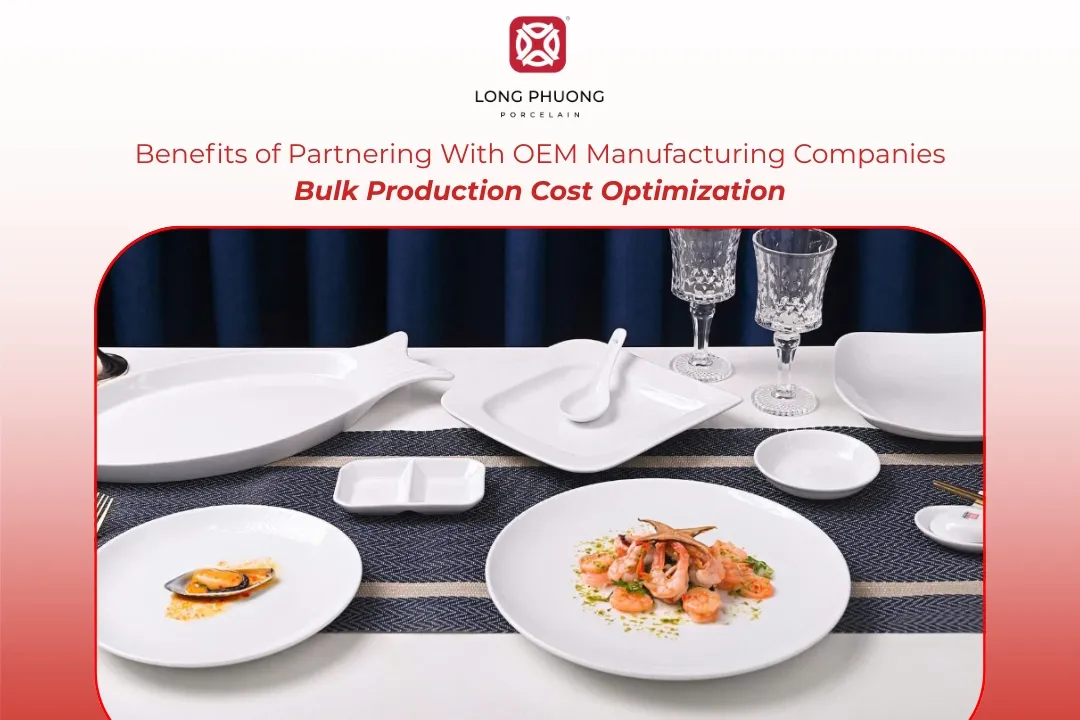
3.3 Control Over Design & Packaging
Unlike generic mass production, OEM companies solutions offer brands full control over product aesthetics and packaging. Whether launching a limited collection or a seasonal gift set, clients can fine-tune every detail to enhance consumer appeal.
3.4 Safer, Export-Ready Porcelain
Trusted OEM companies ensure that their porcelain products meet international food safety standards and export regulations. With robust quality assurance measures and global compliance certifications, brands can confidently enter demanding markets such as Japan, Korea, the EU, and the United States.
4. Key Criteria to Choose a Reliable OEM Partner
4.1 In-House Manufacturing Factory
Reputable OEM companies operate their own production facilities. This ensures better quality control, more consistent lead times, and greater accountability throughout the manufacturing process.

4.2 International Certifications (FDA, SGS…)
Look for partners that hold internationally recognized certifications for safety and quality, such as FDA approval and SGS testing. These endorsements reflect the manufacturer’s commitment to producing compliant, safe, and high-quality porcelain.
4.3 Ability to Customize Shape, Glaze, and Logo
An ideal OEM partner offers not just basic production but deep customization capabilities — including unique product shapes, specialized glazing techniques, and precise logo application via decal or engraving.
4.4 Export Experience to Japan, Korea, EU
Experience in exporting to high-standard markets is a testament to the manufacturer’s expertise and reliability. A partner with a proven track record in international logistics, documentation, and compliance reduces risks for your brand when entering global markets.
5. OEM Production Process Overview
Understanding the OEM production journey helps businesses better plan timelines and expectations. Here’s how it works
5.1 Submit product idea/logo
You start by sharing your desired product design or logo with the manufacturer. This is the foundation of customization.
5.2 Get quotation & confirm design
Once your requirements are reviewed, the OEM company provides a detailed quotation. After agreeing on price and confirming the design, production can begin.
5.3 Mold making – sample approval
A custom mold is created and a sample is produced for your review. Any adjustments are made before moving forward.
5.4 Mass production – packaging – shipping
After sample approval, bulk manufacturing begins. Products are then carefully packaged and prepared for shipment to your location.
6. Trends in OEM Manufacturing (2025)
OEM manufacturing is evolving to meet changing market needs. Here are the top trends shaping the porcelain industry
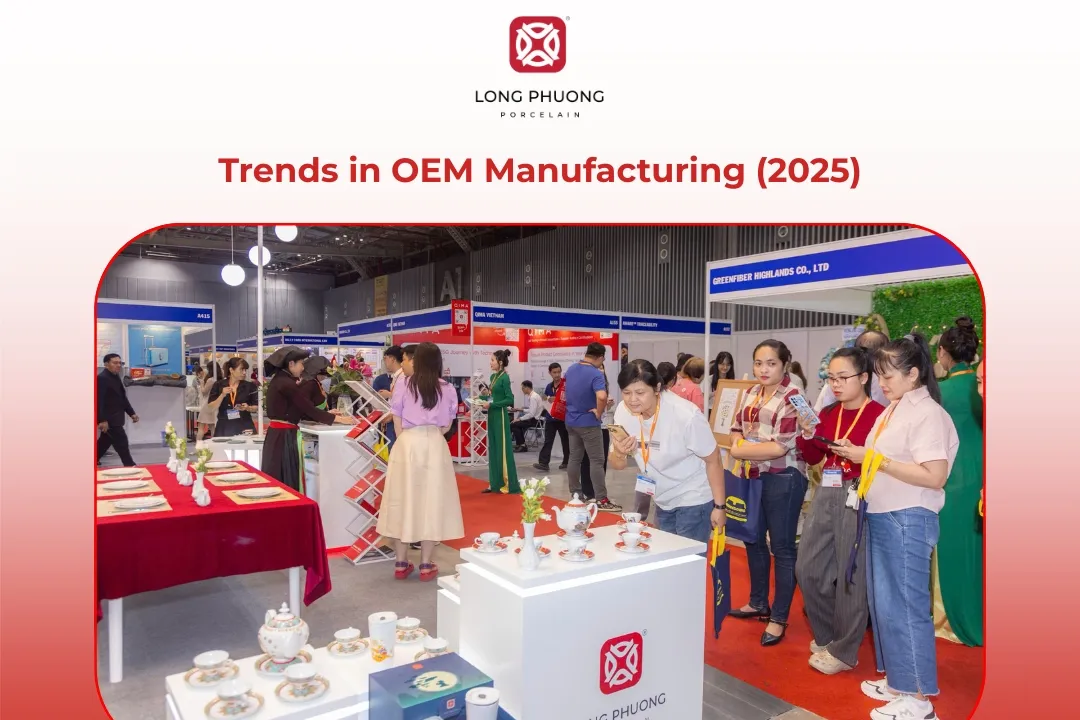
6.1 Customized porcelain gifts with corporate logos
Companies increasingly seek unique gift sets—such as tea sets or mugs—featuring their branding to use as client gifts or promotional items.
6.2 Eco-friendly, lead-free and food-safe porcelain
With a global shift towards sustainability, OEM manufacturing companies are prioritizing environmentally responsible materials and production methods.
6.3 Minimalist designs tailored for restaurants and hotels
Hospitality businesses prefer clean, elegant porcelain designs that match modern interior aesthetics while remaining durable for daily use.
7. Frequently Asked Questions (FAQs)
7.1 What does OEM mean in porcelain?
OEM (Original Equipment Manufacturer) in porcelain refers to producing ceramic goods under your own brand, with full design and packaging customization.
7.2 Can I print my logo on bowls and mugs?
Yes. Most OEM manufacturers offer logo printing on various products including bowls, mugs, plates, and teapots.
7.3 What is the minimum order for OEM?
Minimum orders vary by manufacturer, but they usually start from 300 to 1,000 pieces depending on the product type.
7.4 How long does OEM production take?
The full process typically takes 30 to 60 days from design confirmation to shipment, depending on complexity and order quantity.
8. Conclusion & CTA
In a market that increasingly values differentiation and personalized experiences, OEM manufacturing companies is becoming an inevitable trend in the household porcelain industry. This solution not only helps businesses reduce production costs and optimize operations, but also opens up opportunities to create product lines with a distinctive brand identity — from design and packaging to market positioning.
At Long Phuong Porcelain, we are proud to be one of the leading OEM companies in Vietnam specializing in high-quality porcelain. With flexible production capabilities, a team of experienced technicians, and a rigorous quality control process, we have partnered with numerous brands, retail chains, and hospitality businesses both locally and internationally to create exclusive, aesthetically refined collections.
Contact us today for a detailed OEM quotation and begin your journey toward building your own signature porcelain brand!
Long Phuong Group Joint Stock Company
- (+84) 989 595 866
- export@longphuong.vn
- Hap Linh Industrial Cluster, Hap Linh, Bac Ninh, Vietnam
- 59 Cua Bac, Ba Dinh Ward, Hanoi, Vietnam
- 37 Cua Nam, Cua Nam Ward, Hanoi, Vietnam
- 127 Le Thi Rieng, Ben Thanh Ward, Ho Chi Minh, Vietnam
CEO of Long Phuong Group Joint Stock Company, with more than 20 years of exploration and research to obtain the best formulas and professional experience, Long Phuong Porcelain has produced more than 400 designs of all kinds of household porcelain, Significant contributions to Vietnam's ceramic industry.
 Vietnam
Vietnam
